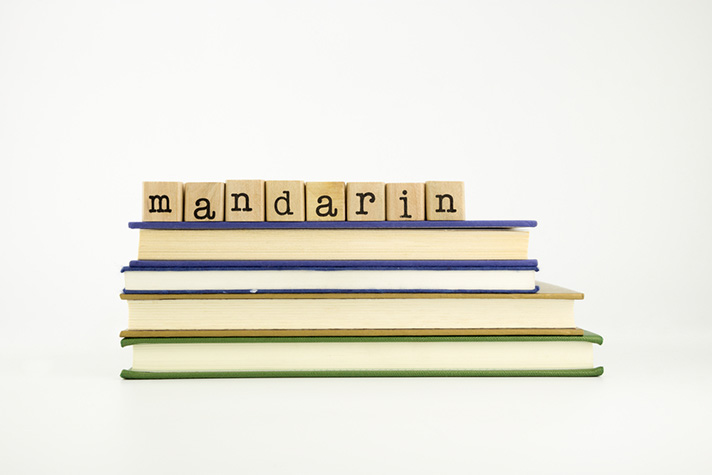As you are probably already well-aware, China is fast becoming one of the most popular destinations in the world (by far, actually).
This may be because of the country’s fabulous nightlife scene (yes, really!). Or maybe it is because of China’s incredible history and many, many historical sites. Perhaps it is their delicious and unique cuisine or the relatively booming economy or a truly fascinating culture that visitors can’t seem to get enough of. Maybe it is all of the above, tied in with the fact that tourism in China is a relatively recent development and many travelers are eager to make up for missed time.
Whatever the reason for this rising popularity, I have to say I am on board.
However, the vast majority of China-bound travelers head to either Shanghai, Beijing or Xi’an. But whether or not you are headed to one of these up-and-coming travel hotspots or another less-explored region of China, you might be surprised to find that not many establishments in China cater to English-speaking guests. At all.
That means that ordering food in restaurants can prove to be a total hassle. Booking a hotel? Not a slice of cake. Even finding the restrooms can be quite an adventure in certain regions (including the aforementioned cities, which comes as a shock to many, since most popular travel destinations at least have signs in multiple languages).
And if you are lucky enough to stumble upon a place that is catered to Westerners, you still might find yourself a bit lost, since translating a complex language like Cantonese or Mandarin into English is easier said than done.
So, in order to give you a hand with navigating around a pretty intense language barrier, here are ten words and phrases that you should know prior to embarking on any Chinese travel adventure.
Note: Like I said, it is a bit tricky translating words to Mandarin (which I am focusing primarily on, since it is China’s “official language”, though I do throw in a few Cantonese phrases in near the end!)
wǒ tīngbùdǒng
This phrase means “I don’t understand”. Because, let’s face it, unless you are already fluent in Mandarin, you probably won’t understand anything that people are saying to you.
And don’t worry too much about pronunciation, since most people don’t expect foreigners to be able to flawlessly speak their language.
nǐ huì jiǎng yīngyǔ ma?
This means “Do you speak English?” This will probably become your must uttered phrase.
Again, I can’t emphasis how misplaced it would be to expect any signs or menus to have translated versions for foreigners. If you do manage to stumble upon some, it may not be very easy to understand, since English to Mandarin is kind of a rough translation, generally speaking.
So, despite the fact that many people will merely look at you with a baffled look on their face, it is always worth asking.
zhège duōshǎo qián?
This phrase means “How much does this cost?” which is not only perfect to know during shopping excursions, but also at restaurants, bars, attractions and in the marketplace.
xǐshǒujiān zài nǎli?
This one is probably one of the most useful phrases for travelers in any language (albeit a little gross to chat about). It means “Where is the toilet?”
I don’t really have to go into detail about why this is important to know, do I?
Duìbùqǐ
In an incredibly populated country like China, odds are that, more than once, you will be forced to push your way through a crowd. So, this handy phrase (which means something like “excuse me”) is definitely worth knowing.
Wèi
This word means something like “hey!” and can be used to grab someone’s attention, which is a pretty useful word to know in a city where you are surrounded by complete strangers!
Speaking of grabbing someone’s attention in China, don’t beckon someone by stretching your hand out and moving your fingers (you know, the “come here” finger gesture). It is much better to make eye contact and bow slightly and use your words. Remember, gestures vary by culture and offending people is the last thing you want to do, I’m sure!
wǒ bù zhīdào
This phrase roughly translates to “I don’t know”, which is ideal for whenever someone strikes up a conversation with you in Mandarin, at all ever. This is especially helpful if your pronunciation skills aren’t exactly top-notch (let’s start a club!) and you can’t manage to say much else.
bié guǎn wǒ
Hopefully you won’t ever have to use this phrase. It means something like “leave me alone”.
Alternatively, you can also say “búyào dǎrǎo wǒ” (不要打扰我), which sends the same message across.
yǒu méiyǒu mài
This phrase may be a bit “choppy” to use in conversations, but in places where being able to find someone who can speak English isn’t so far-fetched, this can be super useful.
This means something like “Do you or do you not sell” and you can probably use the English word or a picture on your phone (which I highly recommend) to get this question answered in shops or in marketplaces.
qǐng wèn
This is another phrase that is worth having up your sleeve in China, as it is a very easy (though an admittedly not-so-suave) way to say “Can I ask a question?”
This is ideal for when you need directions, clarification or any type of help from passer-byers.
Bonus: Some regions speak Cantonese, so you might as well know the following phrases, just to be on the safe side:
Hello- “néih hóu”
Excuse me- “chéngmahn”
I don’t speak Cantonese- “ngóh m̀hsìk góng gwóngdùngwá”
Do/Can you understand- “néih mìhngm̀hmìhng a”
Could you write it down? – “m̀hgòi bātgei?” or m̀hgòi néih sédài a?
If you want to chime in with your thoughts, comments or questions, please feel free to do so below!








